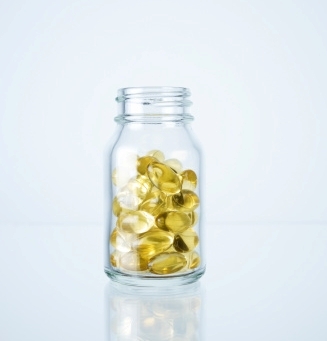Eating Sensibly to Achieve a Healthy Weight
A positive attitude is important for successful weight management. Whether you need to lose, gain or maintain your weight, you need to make a commitment to gradually adopt a healthier "weigh" of life. You can look at nutrition as a health investment for a long and healthy lifestyle. Whether you are 20, 40 or 55, start now to invest in your own good health. The sooner you start, the healthier you may be in the long run.
You can lose weight. The best way to lose weight is to eat less; choose foods low in total fat, saturated fat and cholesterol; and exercise regularly. High fat intake contributes to excess body weight. Being overweight may increase your risk of developing high blood pressure, diabetes, cardiovascular disease and certain forms of cancer.
How do I manage my weight?
- Eat a variety of lower-fat foods to get all the nutrients you need.
- If weight loss is your goal, select the lower number of recommended servings. You also must watch your calorie intake. Remember, "low-fat" does not always mean "low calorie."
- To help control your fat, cholesterol and calorie intake, eat plenty of plant-based foods (grains, fruits and vegetables) and fewer animal-based foods (meat and dairy).
- Increase your physical activity to improve heart health and lose excess body fat.
Tips for reducing fat intake
When selecting foods:
- Learn about the foods you eat by reading food labels. The label on a food package shows the number of grams of fat per serving. Look for "low-fat," "non-fat" and "reduced-fat" claims on packages.
- Choose lean meats, fish and poultry. Look for the words "choice" or "select" instead of "prime." Other good, low-fat sources of protein include dried beans and peas, tofu, low-fat yogurt, low-fat milk, and tuna packed in water.
- Choose skim or 1% milk.
- Enjoy low-fat (no more than 3 grams of fat per ounce) or non-fat cheeses.
- Try low-fat or non-fat versions of your favorite margarine, salad dressing, cream cheese or mayonnaise.
When preparing foods:
- Trim all visible fat and remove the skin from poultry.
- Refrigerate soups, gravies and stews, and remove hardened fat before eating.
- Bake, broil or grill meats on racks that allow fat to drip from the meat. Avoid frying foods.
- Sprinkle lemon juice and herbs/spices on cooked vegetables instead of using cheese, butter or cream-based sauces.
- Try plain, non-fat or low-fat yogurt and chives rather than sour cream on baked potatoes.
When dining out:
-
Body Fat and Weight Loss - Are they Accurate?
How many times a week do you listen to t
-
How To Help Teenagers With Weight Problems
If your teenager has a weight problem, it will not normally just go aw
-
How To Lose 7 Pounds In 7 Days Successfully
For those those who want to realize how to lose 7 pounds in 7 days; ar
-
Gymnema Sylvestre And Its Particular Benefits
The majority of us need to slim down. If
-
How to keep that weight off
Getting your weight under control can help you avoid many health probl
-
The Way You Can Administer Vitamin B12 Injection Therapy
If you’ve been keeping up using the news about health and f
- DON'T MISS
- Cellulite Treatment Creams, Potions and Age Defying Lotions?
- Beware The Summer BBQ
- Top Traits of a Successful Weight Loser
- Stretch To Get Lean And Burn Belly Fat!
- Check Your pH Levels for Good Health
- Diets To Get Healthy Weight
- Are Detox Diets Thin On Facts?
- Becoming Taller In A Quick Way
- Talking About Your Stress
- Hypnosis Technique




